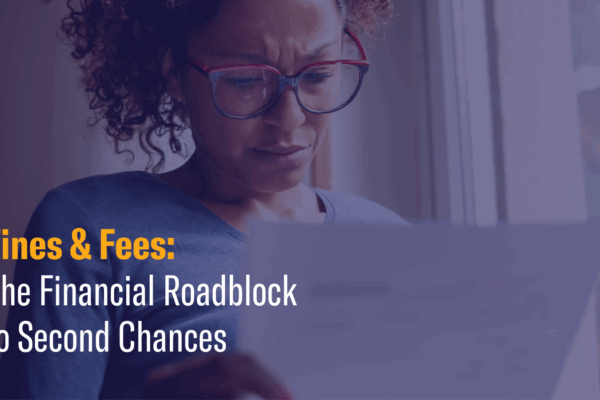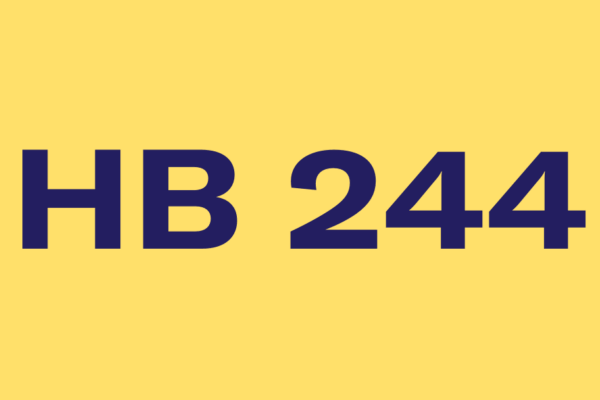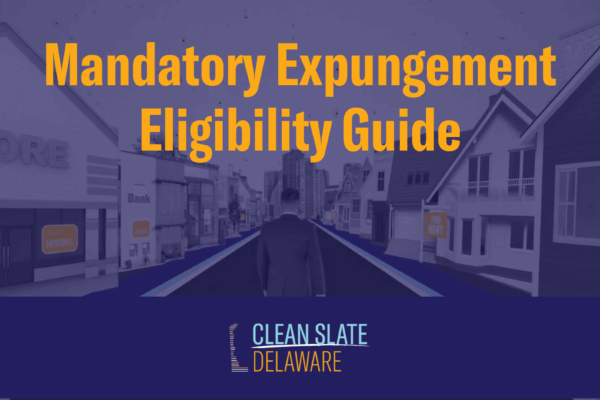In a country where many social issues divide communities, neighbors, and even families, there’s one value that most Americans still stand strongly behind: second chances. Yet, despite this widespread support, our court system often prioritizes collecting fines and fees over providing rehabilitation, and punishes people when they can’t pay.
Last year, Delaware renewed our state’s support for second chances by passing Clean Slate legislation, which will automate the record clearance process and expand access to mandatory expungement for up to 290,000 people who have Delaware records. But, outstanding fines and fees prevent people from clearing their record. This creates a vicious cycle, as outstanding fines and fees prevent clearance of an otherwise eligible record, which impacts a person’s ability to find a job. The inability to find a good-paying job makes it harder to pay the outstanding fines and fees. As more people start to clear their records and access employment, housing, and the opportunity to live productive lives, a large group of people will get left behind: our neighbors living in poverty.
Delaware has the highest per capita misdemeanor arrest rate in the country, resulting in an excess of fines and fees that many people are left unable to pay with no escape.
Every misdemeanor conviction in Delaware carries the potential of hundreds of dollars in court-related fines and fees for the person who was charged. This is an overwhelming financial burden for people who are unable to pay. If payments are missed, the consequences can continue to build, compounding with other consequences like driver’s license suspension, or even time in prison.
If that sounds like a modern-day debtors’ prison to you, that’s because it is. Here's how a $100 fine can escalate quickly:
Starting: $100 Fine
+ $135 “Jury Trial Fee”
+ $10 Court Security Assessment
+ $1 Videophone Fund
+ $1 DELJIS Fund
+ $15 Fund to Combat Violent Crimes
+ $10 Volunteer Ambulance Company Fund
+ $10 Victim Compensation Fund
+ $100 Public Defender Fee
= $382 Owed to the Court
The sole purpose of fees isn’t to be a deterrent for crime; it’s to fund our government — but it shouldn’t come at the expense of peoples’ opportunity to live their second chance.
A U.S. Federal Reserve Report found that 27 percent of Americans would have to borrow or sell something to pay for an unplanned $400 expense, and 12 percent would simply be unable to cover the expense at all. When the penalty for a crime involves money, our courts punish low-income Delawareans more harshly — as a state with a poverty rate above the national average, a few hundred dollars can be too heavy a burden for many of our neighbors to bear.
Fortunately, there are solutions to this problem that will help people who are held back from accessing their second chance because of court debts.
House Bill 244 (HB 244), which just passed the House chamber and will move on for consideration in the Senate, will eliminate a number of fees outright, eliminate all non-traffic fines and fees for children, and prohibit the Division of Motor Vehicles from suspending driver’s licenses as a penalty for nonpayment of a fine, fee, costs, assessment, or restitution. Lawmakers should move HB 244 through to the Governor’s desk before the 151st General Assembly’s legislative session comes to a close this June.
In addition, Delaware can:
- Consider ability to pay when assessing and enforcing fines and fees at sentencing;
- Remove fines and fees as a barrier to record expungement;
- Make expungements and records-access free, without additional monetary charges;
- Move away from funding critical government services through the criminal justice system
The sole purpose of fees isn’t to be a deterrent for crime; it’s to fund our government — but it shouldn’t come at the expense of peoples’ opportunity to live their second chance. It is time for Delaware to take the steps necessary to end modern-day debtors’ prisons and increase access to second chances for people living in poverty.





